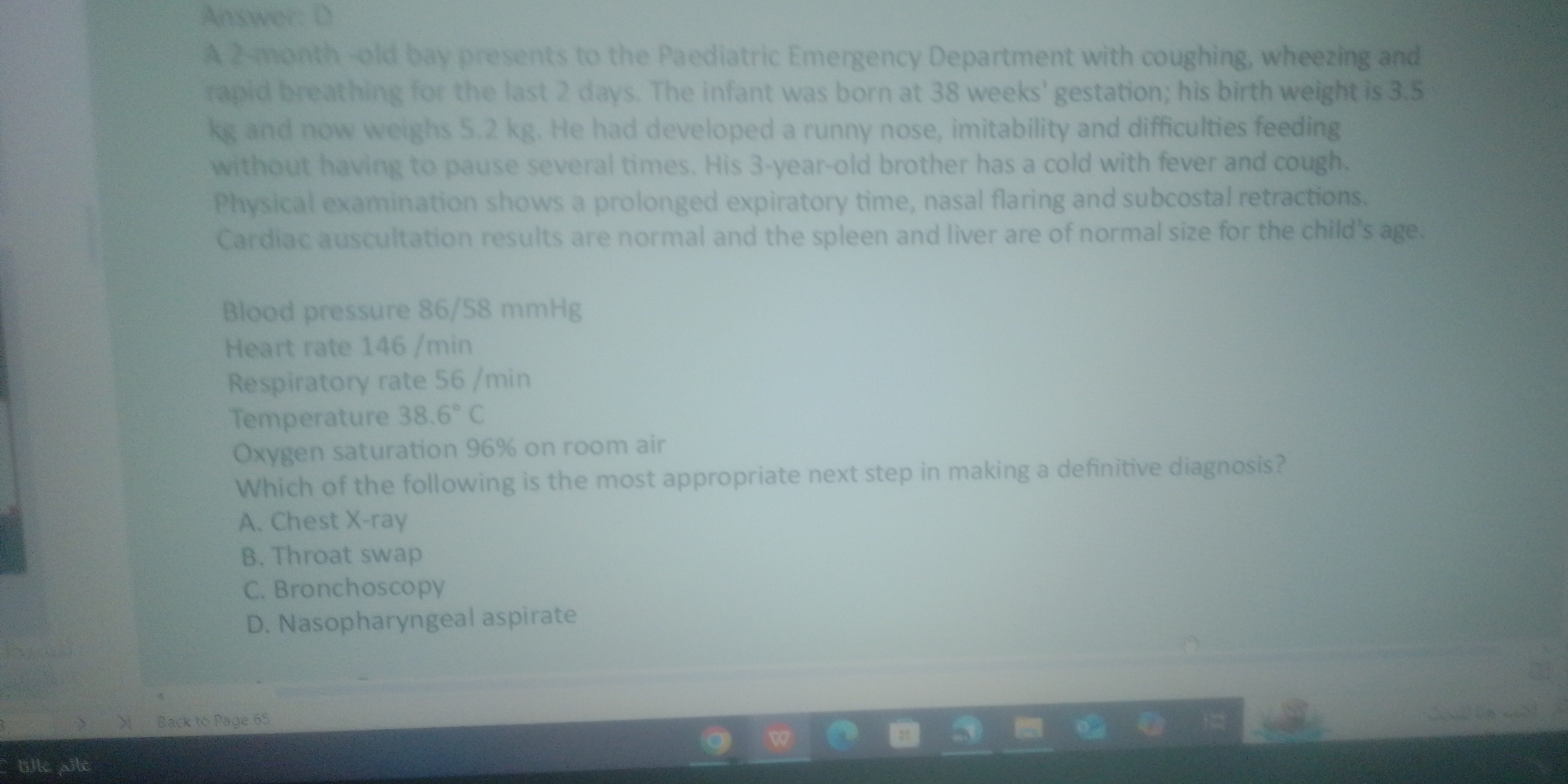Which of the following is the most appropriate next step in making a definitive diagnosis for a 2-month-old infant presenting to the Paediatric Emergency Department with coughing,... Which of the following is the most appropriate next step in making a definitive diagnosis for a 2-month-old infant presenting to the Paediatric Emergency Department with coughing, wheezing, rapid breathing, runny nose, irritability, and feeding difficulties? The infant was born at 38 weeks' gestation, birth weight 3.5 kg, current weight 5.2 kg. The 3-year-old brother has a cold with fever and cough. Physical examination shows prolonged expiratory time, nasal flaring, and subcostal retractions. Cardiac auscultation results are normal, and the spleen and liver are of normal size. Blood pressure is 86/58 mmHg, heart rate 146/min, respiratory rate 56/min, temperature 38.6°C, and oxygen saturation 96% on room air. A. Chest X-ray B. Throat swap C. Bronchoscopy D. Nasopharyngeal aspirate

Understand the Problem
The question describes a medical case of a 2-month-old infant with respiratory symptoms and asks which diagnostic test is the most appropriate next step. We need to evaluate the patient's symptoms and lab results to arrive at the most appropriate course of action.
Answer
The most appropriate next step is a nasopharyngeal aspirate.
The most appropriate next step is D. Nasopharyngeal aspirate.
Answer for screen readers
The most appropriate next step is D. Nasopharyngeal aspirate.
More Information
Given the infant's symptoms (coughing, wheezing, rapid breathing, runny nose) and the brother's recent illness, bronchiolitis is a likely diagnosis. A nasopharyngeal aspirate is the most appropriate next step to confirm the diagnosis by testing for common viral causes of bronchiolitis, such as RSV.
Tips
It is important to consider the most likely diagnoses based on the patient's age and presenting symptoms. In this case, bronchiolitis is a common respiratory illness in infants, and a nasopharyngeal aspirate is a quick and easy way to confirm the diagnosis.
Sources
- Bronchilitis in the emergency room | UC Davis Children's Hospital - health.ucdavis.edu
- [PDF] Children's Mercy Hospitals and Clinics - childrensmercy.org
AI-generated content may contain errors. Please verify critical information